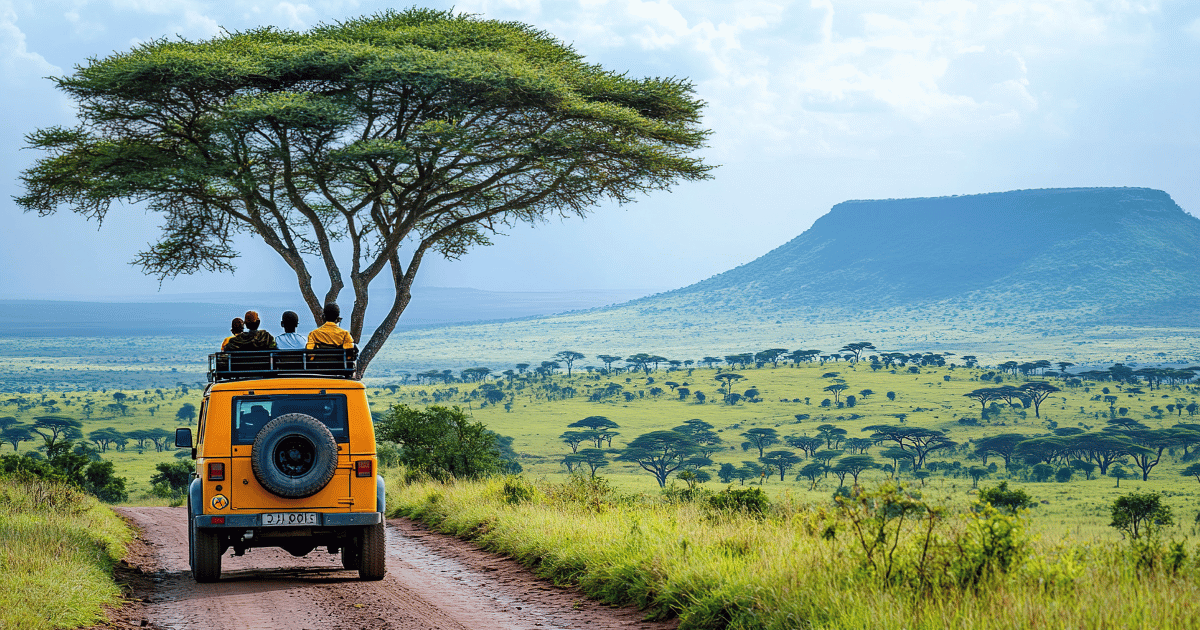Imagine a continent of untapped potential--vast natural resources, a large youthful population, and an urgent need for sustainable development. Just picture that same continent propelling a global green revolution, pioneering renewable energy, sustainable agriculture, and eco-tourism. This is Africa's future, and it is unfolding right now.
The green economy in Africa is set to grow by leaps and bounds, and the opportunities are in everything related to it, including solar power and environmentally conscious agricultural systems. However, there are significant challenges: investment challenges, regulations, and the absence of infrastructure that may hamper this green transformation. This post will delve into the green investment space in Africa, some of the key sectors prepared to blossom, and the implications that investors can follow to minimize the challenges and unleash the potential in the continent.
Why Africa’s Green Future is a Key Investment Opportunity
The green economy in Africa is not a mere buzzword but a game-changer for Africa. Climate change is already experienced in Africa, but the green economy provides an opportunity to make these realities an opportunity. Africa has been identified as one of the most susceptible areas to the effects of global warming. Still, it is also among the least contributors to greenhouse gas emissions. This qualifies it as a unique and urgent market for sustainability solutions.
Investing in green industries, like renewable energy, eco-tourism, and sustainable agriculture, can achieve large-scale economic growth while solving burning environmental issues. The African Development Bank estimates that Green investment in Africa would bring more than 15 million jobs by 2030, with green sectors such as renewable energy, waste management, and agriculture being the pioneers.
One specific field of opportunity is renewable energy, and Africa has a real possibility of becoming a world leader in incorporating solar, wind, and hydroelectric energy. This continent possesses significant natural resources, which, through exploitation, would cover local energy requirements and meet global targets on renewable energies.
In addition to energy, sustainable farming has a massive potential, particularly as the quality, organic, and locally grown foods market continues to develop. The enormous potential arable land in Africa and new food production methods would allow the rest of the continent to feed itself and heal its land and biology.
Key Sectors for Green Investment in Africa
-
Renewable Energy
Africa is among the best environments for renewable energy projects since it has natural resources like sunshine, water, and wind. In Africa, particularly sub-Saharan Africa, solar energy is auspicious. According to IRENA, the renewable energy potential in Africa would increase fivefold by 2030, bringing clean energy to the continent and offering thousands of opportunities. -
Sustainable Agriculture
The economy of Africa relies extensively on agriculture, where the need to adopt sustainable practices has increased to prevent soil degradation and water scarcity. Practices such as crop rotation, agroforestry, and organic farming have gained popularity, assisting farmers in generating better climatic resilience and soil health. -
Eco-Tourism
Africa also has vast diversity in biodiversity and natural beauty; hence, eco-tourism has become one of the main tourist destinations. Eco-tourism not only conserves but also boosts local economies; this is seen in Kenya's safari activities and living and staying in sustainable accommodations and lodges in South Africa. The industry is growing at a high rate, with tourists opting more towards sustainable tourism, which is ethical to the environment and society. -
Waste Management and Recycling
Rapid urbanization is known to generate an enormous waste issue, yet, at the same time, it provides chances of green investment in waste control and recycling. Waste-to-energy programmes, recycling installations, and plastic reduction inventions provide solutions in Africa to address the waste crisis and convert waste into energy and employment. As one of Africa's most profitable green sectors, the waste management sector can take off.
Challenges in Investing in Africa’s Green Future
Despite the abundant opportunities, investing in Africa’s green future comes with its fair share of challenges. These barriers can make potential investors hesitant, but they are not insurmountable.
-
Access to Capital
Access to capital is among the most significant challenges that Africa is experiencing when it comes to green investments. Most green projects involve substantial initial investments, especially in renewable energy and sustainable agriculture. Nevertheless, local banks usually cannot finance this big project, and international investors may fear taking risks. -
Regulatory and Policy Barriers
A lack of consistent and cloudless policy support and inconsistency of laws limit the emergence of a green economy. While some African countries have done a lot of work establishing beneficial environments for green investments, others still do not have laws or regulations relating to things like carbon trading, renewable energy incentives, and environmental protections in place. -
Infrastructure Gaps
The infrastructure in Africa, especially in rural settings, is not always sufficient to sustain massive green projects. Green energy solutions like those found in renewable energy projects would depend on reliable grid systems. All eco-tourism solutions would need viable transportation systems and waste management. The potential of green investments is not entirely achievable without extensive infrastructure development. -
Skilled Workforce
The second obstacle is the insufficient supply of expertise in green industries. A youthful and expanding population characterizes African countries, but most green industries demand highly specialized skills in renewable energy technology, sustainable farming, and waste handling. Unless training and education are made accessible, the development of green sectors might not be achieved.
How to Overcome These Challenges.
The good news is that the right approach can overcome many of these challenges. Governments should promote green investment and consider policies favorable to sustainability, like the incentive of renewable energy projects, subsidies on sustainable farming, and the regulation of eco-friendly tourism.
International financial institutions and development banks may also contribute to the process by offering capital and financing programs for green projects. Moreover, the collaboration between local governments, private investors, and NGOs can also assist in filling the weakness in infrastructure so that projects are facilitated adequately along the entire spectrum of implementation.
Conclusion and Call to Action
The green future of Africa is full of opportunities yet there are so many challenges to be met in achieving the goal. The possibilities are immense--renewable energy, sustainable agriculture, eco-tourism, and waste management are all areas that hold long-term development potential, employment generation and environmental gain.
The future is here, governments, investors and locals should converge and invest in green Africa. Barriers to investment and a solution to these problems can be solved by bringing them to the table to initiate a sustainable and prosperous future to Africa and the whole world.
It’s time for Africa to lead the green revolution. Will you be part of it?

Eco-Conscious Travel: Discovering Africa’s Sustainable Destinations
.png)
Branching Into The Future: Greening the Smiling Coast, The Gambia
.png)
.png)
.png?height=420&name=africaisgreen-ecotourism-banner-1200x630%20(2).png)
.png)

Leave a Comment